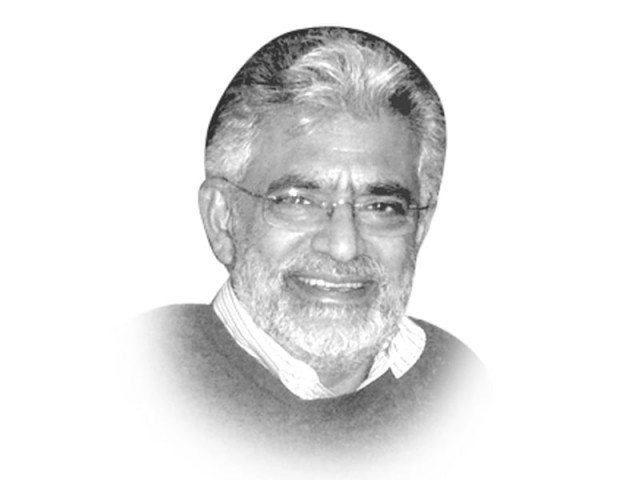In tatters: Pakistan’s Middle East policy
Pakistan's ME policy has been one of status quo; that is, support autocratic leaders in exchange for petro-dollars.

However, the reality is far more complex and the uncomfortable truth is that the wave of democratisation ignited by the occupation of Tahrir Square is encircling Saudi Arabia and the Gulf states, the linchpin of western strategic interest in the region. Eruptions in Yemen, Bahrain, Jordan and the more muted demands in Saudi Arabia itself, are indicative of regional resonance and the significance of the demand for democratisation. The contradiction in the West’s support for democracy stands exposed. This is because not only is it muted in its support for pro-democracy movements in these countries, it also does nothing to goad the regimes towards reform. The question that hangs in the air is, how long will these potentates and autocrats remain in power?
Saudi Arabia has drawn a line in the sand and, like Qaddafi, will use force to suppress the tide for democracy within its borders and in neighbouring states. The sending in of troops to Bahrain under the pretext of Iranian influence is stirring up the Shia majority and seems to be a desperate attempt to prevent the tide of democracy from entering the Arabian Peninsula. This is a futile act, like King Canute commanding the sea to go back, and is likely to radicalise the demands for democracy into demands for a republic. If regimes are unwilling to reform, then the danger of revolution becomes more significant.
The Pakistan military has seen secondment to the Gulf States and Saudi Arabia as comfortable and profitable sinecures under the guise of Islamic solidarity. However, now, Pakistanis are being recruited as mercenaries, to suppress the demands for democracy, by increasingly desperate autocrats who don’t have the confidence and loyalty of their own armed forces. Qaddafi recruits mercenaries from Africa to fight off demands for freedom and Bahrain turns to Pakistan. No one knows what the next page in history will show and how developments in the Middle East will pan out. The dam may burst and demands for democracy may lead to reform, or they may be suppressed and gestate into more furious uprisings, only time will tell. However, for Pakistan, the danger of acting as mercenaries for these regimes may result in it becoming the enemy of the people. If change comes, Pakistan may find that it has backed the wrong side and, keeping that in mind, it needs to develop a more sensitive understanding of the momentous developments taking place, and not view them from the Saudi perspective of seeing the movement in Sunni-Shia terms.
The tide is turning and Pakistan needs to be aware of the very real possibility that if these regimes topple, those who come to power may view Pakistan in a negative light. Hence the need for Islamabad to perhaps start hedging its bets.
Published in The Express Tribune, April 01st, 2011.














COMMENTS
Comments are moderated and generally will be posted if they are on-topic and not abusive.
For more information, please see our Comments FAQ